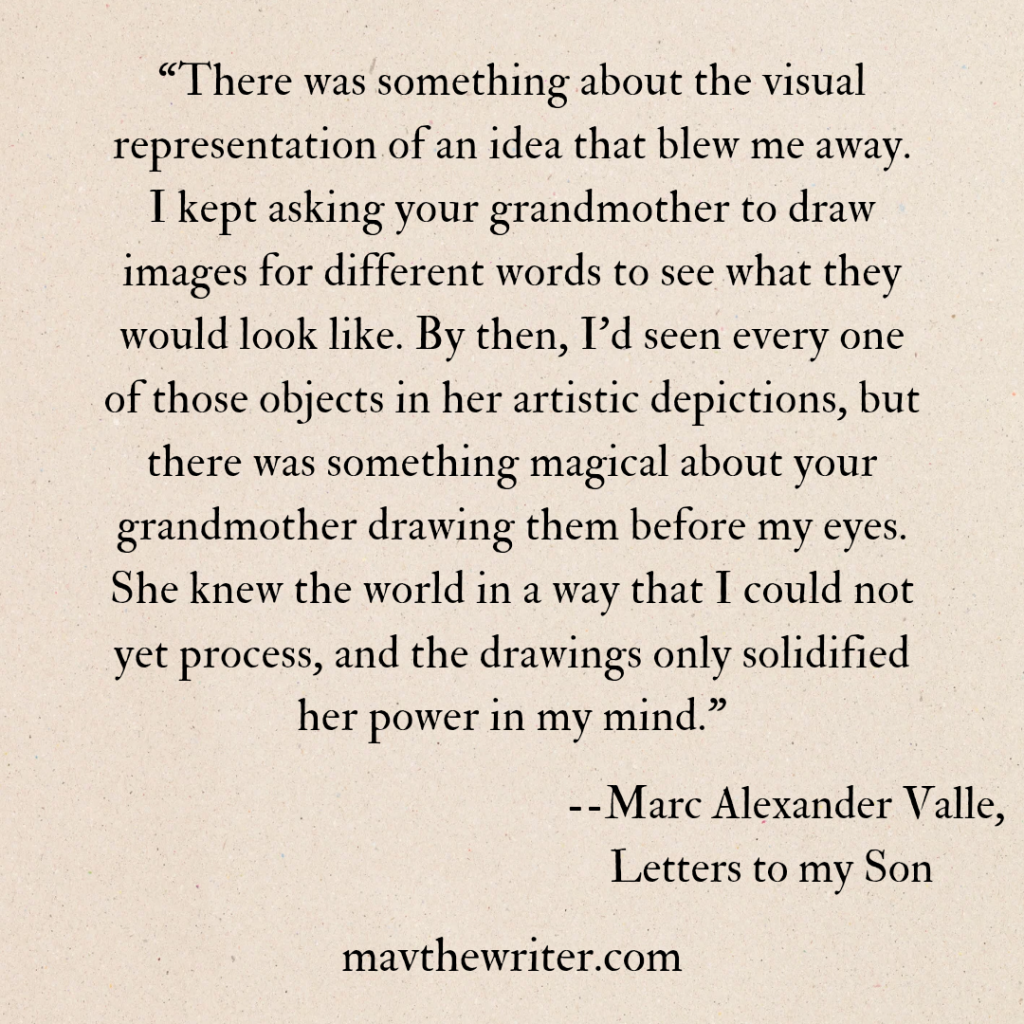
by
mavthewriter
Categories: WritingTags: #amwriter, #amwriting, #amwritingpoetry, #childhoodmemories, #writers, #writerscommunity, author, Childhood, memoir, Writing, writingcommunity
Leave a comment

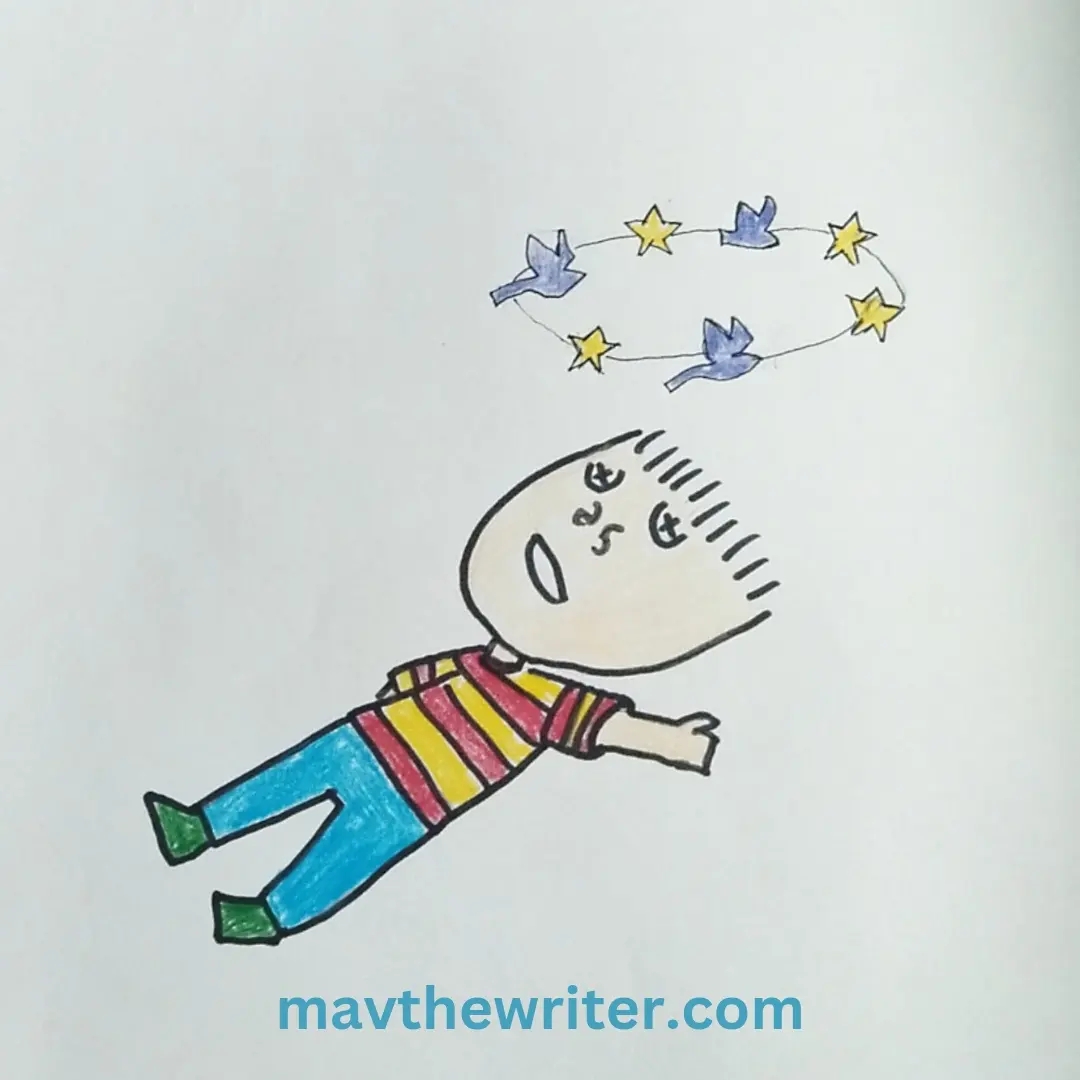

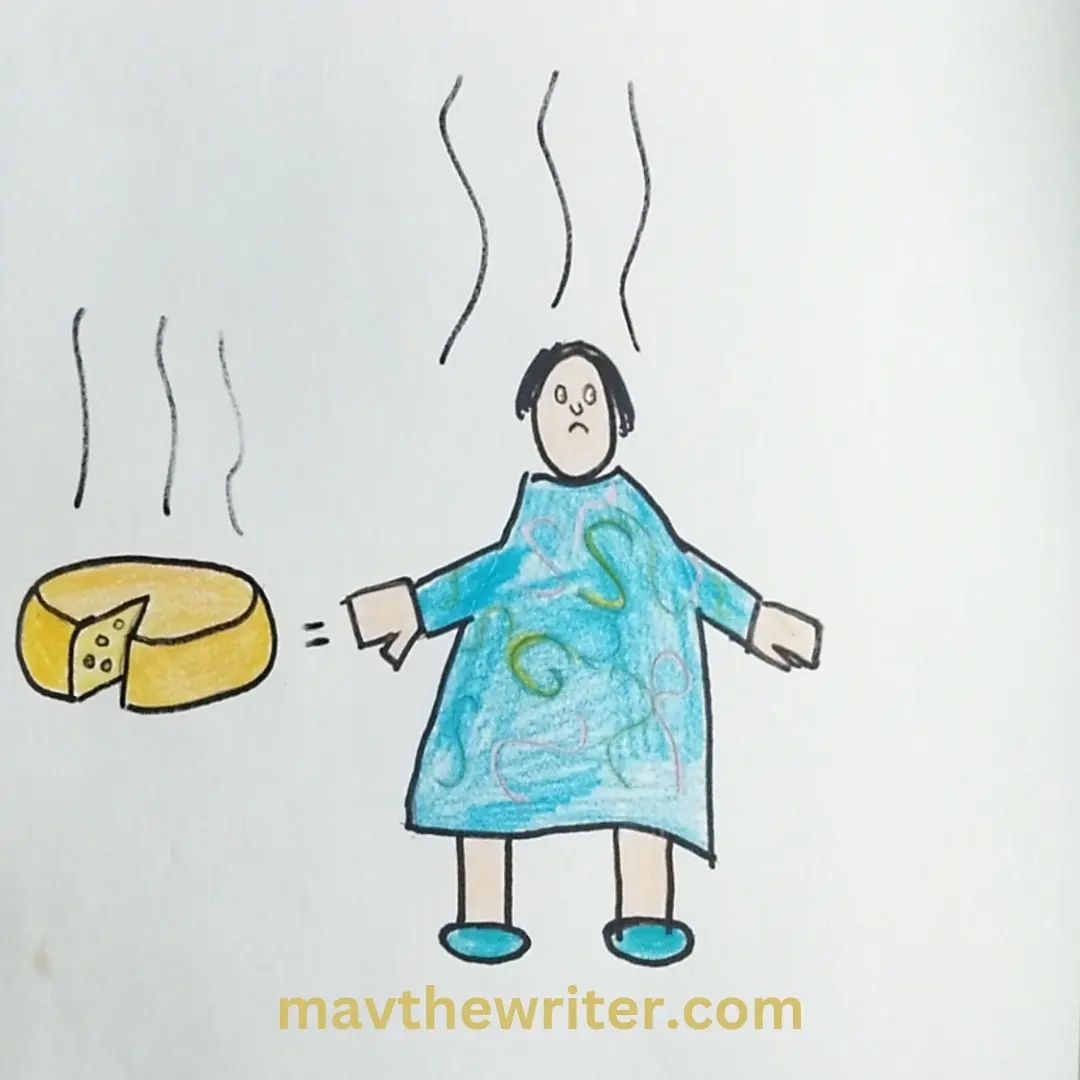
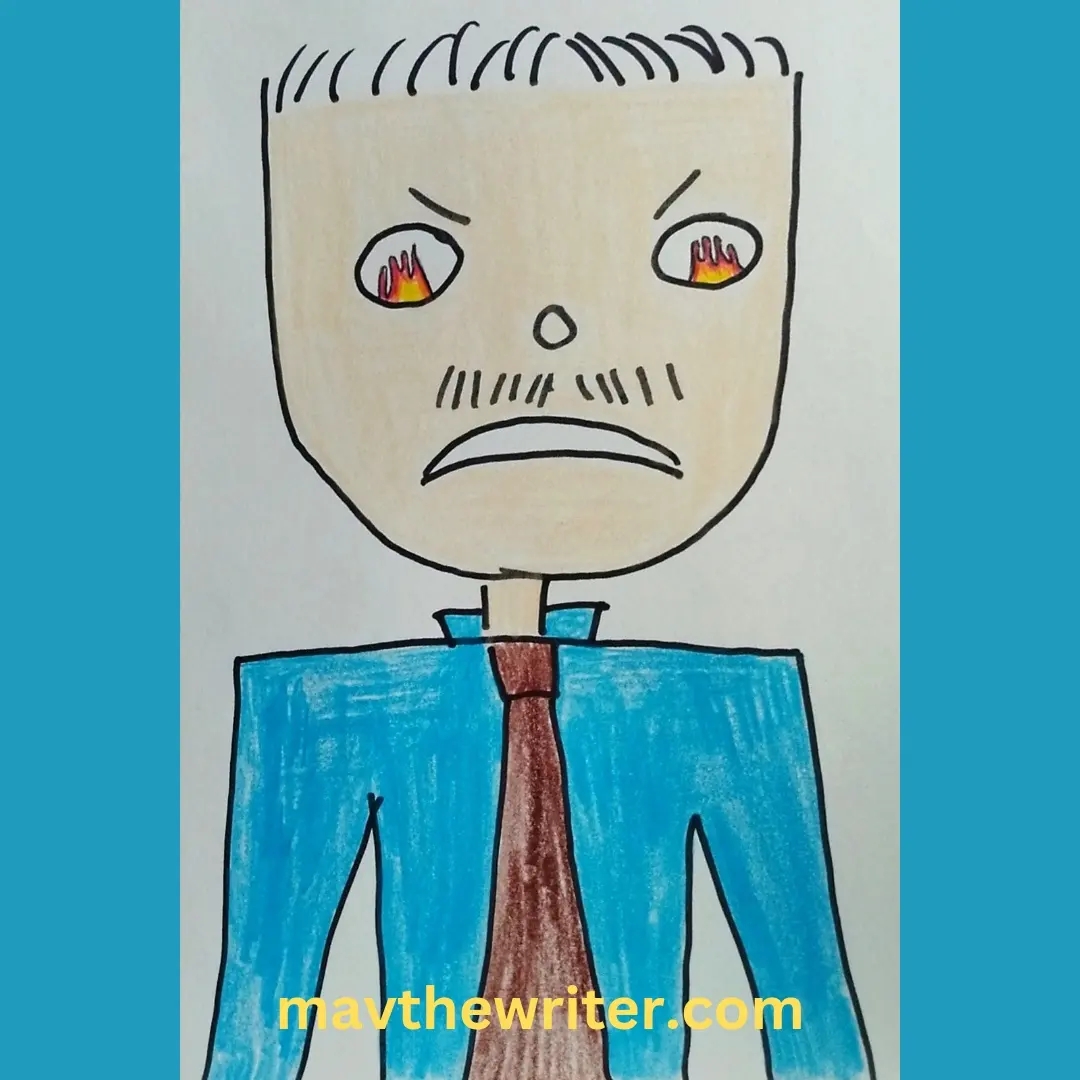
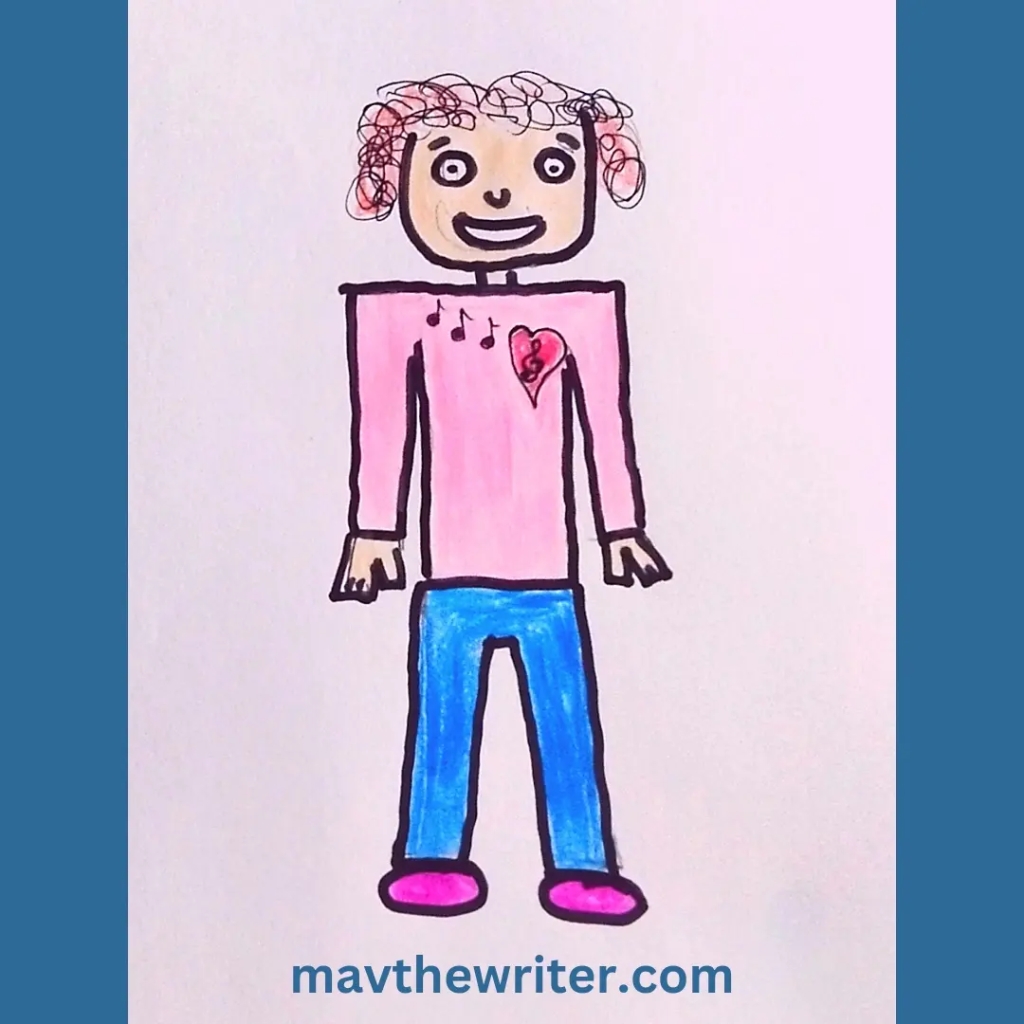
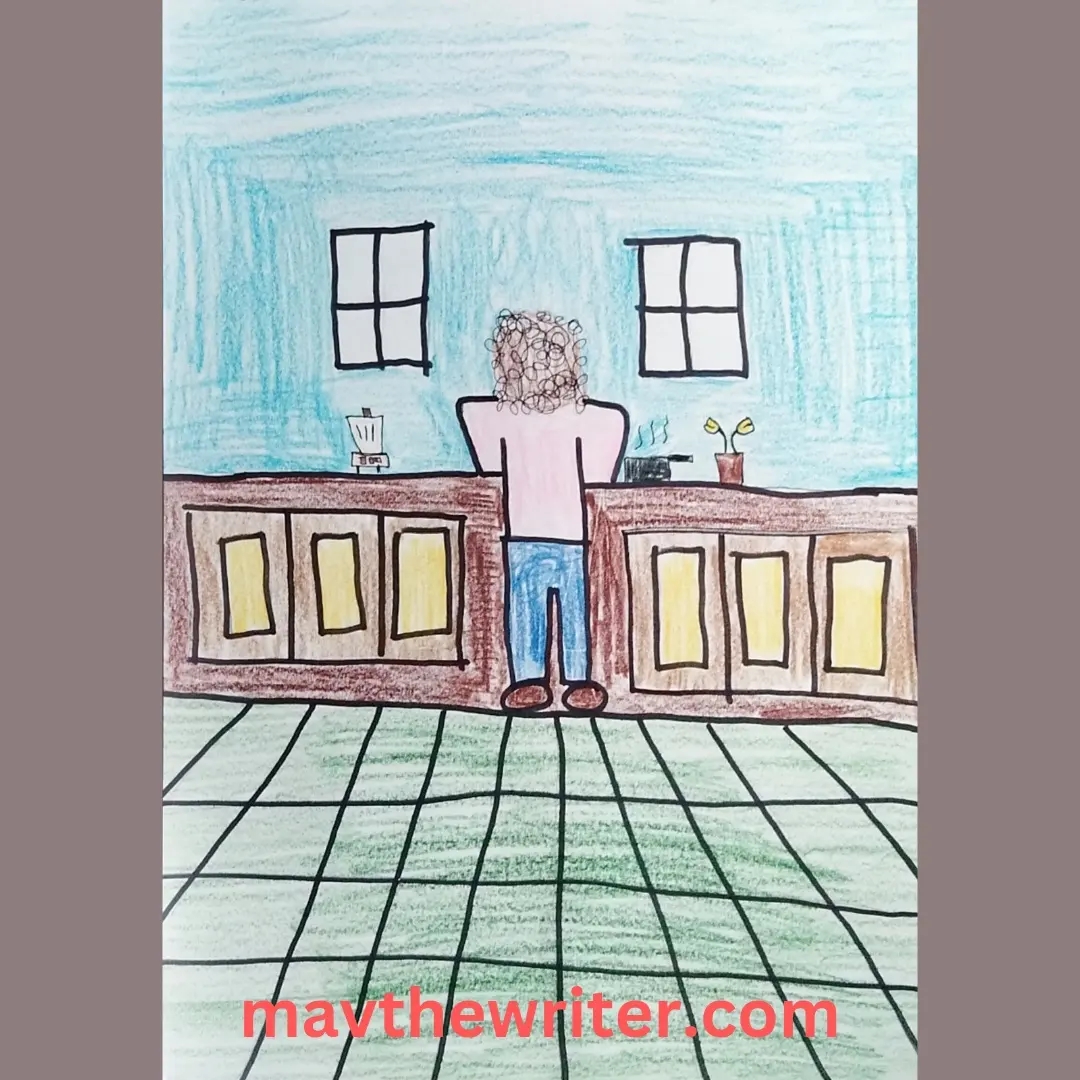
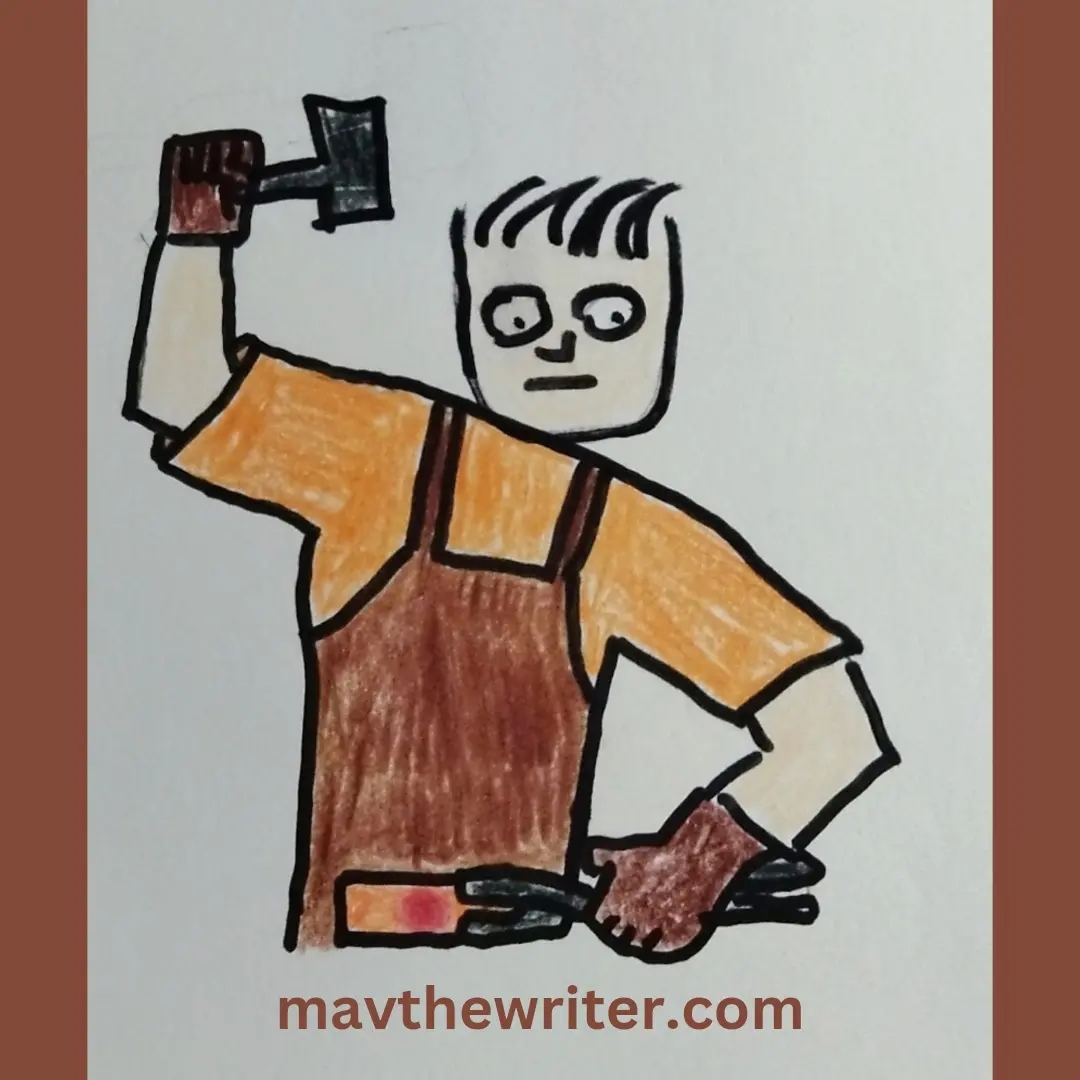
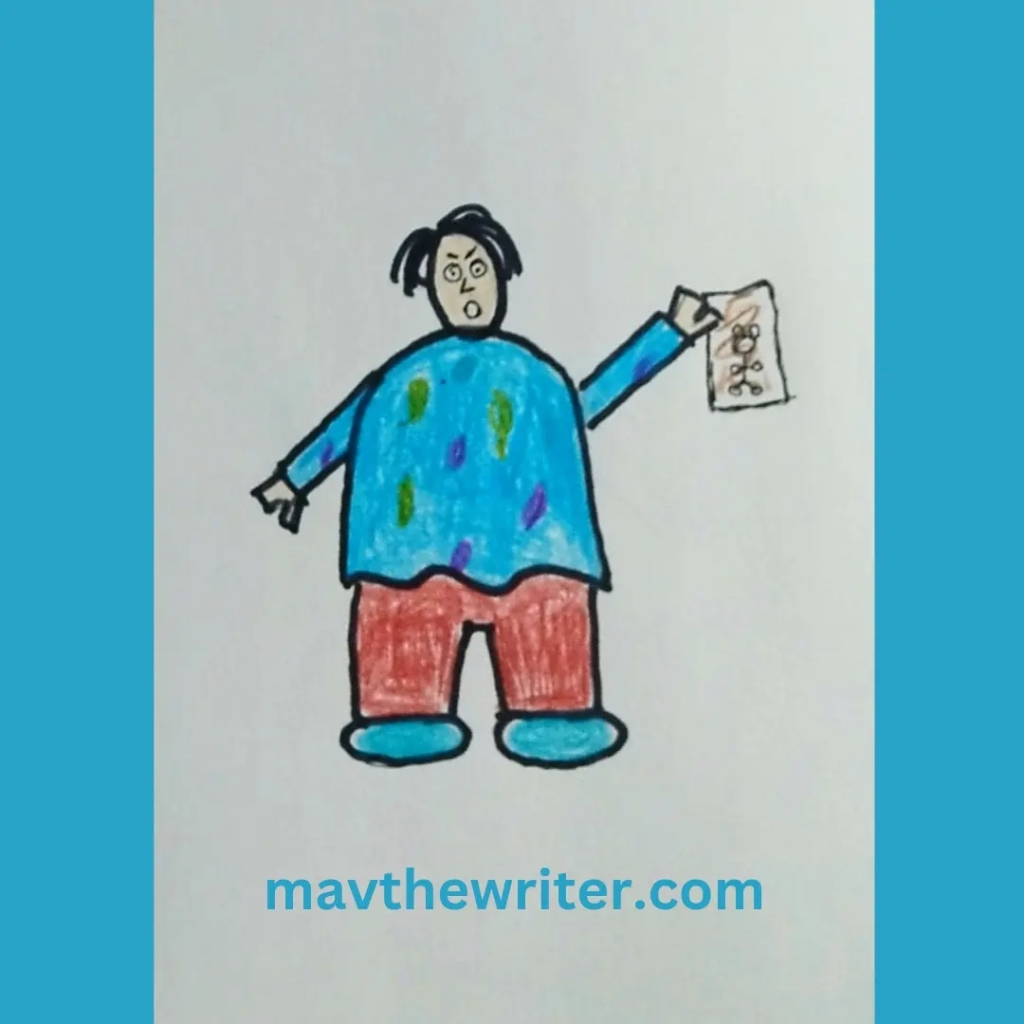
When something doesn’t go Emile’s way, he says that it’s stuck. When he can’t open a door, it’s stuck. When a ball or toy is lodged under something, it’s stuck. When he can’t push his carriage across the sidewalk, it’s stuck. When an object is too heavy to lift and throw outside of his playpen, it’s stuck. Stuck no longer means stuck to him. Anything that serves as a source of frustration and forces him to solve a problem, anything that he can’t control and must learn to overcome, anything that he can’t manipulate and must learn to leave alone, all of it is stuck. With that said, I have a possible name for my future book of stories and essays that I’m writing for Emile. The World Is Stuck.
Please, I welcome FEEDBACK. Feel free to comment.
First published in Potato Soup Journal on October 20, 2019
Daybreak on the Banshee
by Marc Alexander Valle
The women cried and wailed and prayed behind us, and my 7-year-old mind thought the dead body would look like something from the movies. I never saw a dead body before, and I was certain that it would look like a skeleton from a cartoon or at least Freddy Kruger. It would definitely be something that comes out only at night.
I stepped forward with my father and older brother towards the casket. All the conversation and noise in the room became silent inside of my head. I could only hear my thoughts, and all I could think was that I had to let dad step forward first and to be careful.
The toy soldier in my pocket poked into my thigh, and I readjusted it.
“What’s wrong?” my father said.
I looked up at him. “Nothing.”
I peered into the casket, and took in a deep breath.
It was my adult cousin, the one who lived down the street. No skeleton or wounds or blood or winkled skin. Just my cousin. It reminded me of a wax figure. My cousin. Then the silence fell to the back, and I could hear the wailing and the prayers of the woman once more.
“That’s it?” I said to my dad.
“Yeah,” he said. “Quiet.”
I felt compelled to go into my pocket and leave my cousin the toy soldier amongst all the flowers. I didn’t dare.
Death had only been a concept to me. Outside of television and movies, I only had urban legends. There was the time they found a dead body down at the end of the street in tall weeds. My older friend, Vic, said that it was done by a serial killer, who broke free from the Allentown State Hospital. He said that the escapee planned on killing all of the adults and torturing the children to exact some form of revenge. Despite my father’s assurance against this claim, I feared a man was roaming the streets with a gun that night. I couldn’t sleep. They ruled it suicide the next day, and I was relieved.
There was the story of the boy, who drowned in the Lehigh River next to Bucky Boyle Park. They said he swam too close to the whirlpool that swirled in the center, and he couldn’t swim back. For that reason, they told us kids to not even so much as step into the water.
Then there was the story of the boy, who fell out of a window in our former Brooklyn apartment complex. They said his ghost haunted the court yard. I had nightmares about him until we moved.
The wailing and the prayers grew even louder, and it began to make me sick to my stomach. I had enough of looking and standing still.
I looked back up to my father.
“I have to go to the bathroom,” I said.
“Quiet,” he said, then took my hand and we walked away.
Back in the car and on our way home, my father reminded me and my brother that although our cousin was dead in the physical form, he was still alive in spirit. And that spirit is everlasting and although we cannot see him, he’s still with us. The moment he described my cousin, I imagined the translucent ghost of Christmas past from a TV version of Christmas Carol.
“Do you think Freddy Kruger could beat a ghost?” I said to my older brother.
“I don’t know,” my brother said.
“Cause Freddy’s got claws,” I said.
“You’re dumb,” he said. “Nothing can beat a ghost.”
I looked back out the window and noticed that it was a beautiful day. When I got home, I would go outside and play with Mitch. Mitch was fun, and he would let me lead. We’d race and play with our toys, and I’d give him the soldier that was scarping my thigh, and I’d tell him that I don’t think I like funerals.
It was a beautiful day. No clouds were in sight, and I could see a faint moon above, immersed in blue sky. A couple of sparrow streaked across it. A gust of air from my father’s window blew into my face. The sun touched everything. And there was plenty of time before dark.
by Marc Alexander Valle ©2019
Delicacy
by Marc Alexander Valle
The boy looked down at the worm, squirming on the backwoods trail. A ray of light illuminated its pinkish hue and a warm breeze hit his face.
“Eat it,” she said. “I’ll kiss you.”
“No,” he said.
“Then no,” she said.
But he had wanted to kiss her all summer, floating in the deep in the pool, bumping her hand at the movie theater as he reached for soda, lying on the grassy field with the late morning sun warming him enough to feel bliss.
He looked back down. Then kept squirming and picking up dirt.
“It tastes like nothing,” she said. “Go ‘head.”
He thought of candy then reached down and picked it up.
He could feel its life force as it wiggled and expanded on his palm. Candy would be pointless, he thought, “It’s too fleshy.” Then he imagined roast chicken instead.
“I’ve done it,” she said, “You won’t get sick.”
He popped it in his mouth and could feel it slither then contract, the dirt turning to grim on his tongue. He swallowed it and closed his eye. It slide down his throat quickly and he could feel it move. And like everything else he ate, the feeling disappeared just before reaching the stomach.
He opened his eyes and looked to her.
“Yuck,” she said.
He stepped forward and closed his eyes again.
His lips touched hers.
But he felt nothing in return. He held the kiss and waited for her to reciprocate. But he felt nothing in return. He stepped forward and moved his face closer to her. But he felt nothing in return. He could feel nothing but the dead lips, hear nothing but the cicadas and crickets chirping. Just the dead lips and live bugs and the hope of something in return.
She pulled away and jabbed his stomach.
“Gross,” she said, “I’m not kissing bugs.”
As he held onto his gut crunched over he could see her walk away down the path and out of sight. The pain spread across his abdomen and he wasn’t sure if he needed to go to the bathroom.
He could hear the bird chirping and an animal moving in the brush. He had to go home now. If he was late for dinner one more time, he’d be grounded for two days.
Rays of light disappeared as a cloud rolled in. A cooler breeze hit his face. He wondered what boy he’d get to tell first.
Hour of the Muse. A video poem that I wrote, directed and performed in.
A video poem written and directed by Marc Alexander Valle ©2018
“My mom says I gotta separate the laundry before we can play games,” Sal said. “Want to help?”
It was my first sleepover and this was new to me. My mom never let me touch the laundry. I said yes.
“Whites, darks, and lights,” he said. “That’s how you pile them up, Marc.”
I dug into one of the two bins that was closest to me.
This is dark.
Toss.
This is light.
Toss.
This is white.
Toss.
Until all three piles formed into mounds.
“You’re a liar,” he joked. “You’ve done this before.”
“Nah-uh. First time.”
This is dark.
Toss.
This is light
Toss.
This is white.
Holy snap! It’s got doo-doo on it!
Toss!
I backed away from the bin.
“What’s the matter?” Sal said, continuing his work.
“Nothing.”
“You’re not gonna help?”
“Yeah. I gotta go to the bathroom.”
“Really?”
“Yeah.”
“Well, can it wait? Just a little more, right?”
That had to be the only dirty underwear in there.
Maybe it was just a one-time thing.
“All right,” I said.
I stared at the bin. Another pair of white underwear stared back.
“It’s just clothes,” he said. “It’s not gonna bite.”
I couldn’t tell if it was soiled. It was too crumpled up. Not enough light.
I’ll grab the elastic. You can’t do boom-boom on the elastic.
“I’m done on my end,” he said. “Anymore?”
Maybe I can pretend I don’t see anything.
“What’s the matter, slowpoke?” he said, laughing.
I kept staring, debating, not wanting him to know that I knew.
“Marc, anymore?”
12/26/2017 (6:39 am – 6:54 am)
And the thought arose from the ocean of my mind and said, “Ask the breath. The breath will tell you both your question and answer.”
I had a vision. I thought about a current situation that I cannot control and a thought-emotion-image popped into my head. I was in early elementary school and I felt a bad feeling. I didn’t like early elementary school. Especially, the first two grades. I remember coming home crying to my mother one kindergarten day, saying how no one likes me. School was a jungle to me. People were wild and heartless animals and I could not understand their language. I was used to a certain level of attention and nurturing from home, from mother, but these kids just didn’t react to my jokes and TV references and my personality.
People were just mean without reason and no matter how many decent classmates were actually there, the sucky people stuck out the most. They were into who-likes-who-type things and who’s-being-bad-type things.
I always wanted to go home early in kindergarten and first grade. I was quiet and inside myself with no sense of social intuition. These kids were like Soviet gymnast on steroids when it came to socialization and I was Popeye pre-spinach.
I felt those feelings in that split second of meditation. I could see how those feelings began in early grade school and still follow me until this day. I had no control. Everyone and everything else did have the control, at least the illusion of it. But it’s better than nothing.
I formed my ego in the middle of a cursive writing lesson, writing out my name in the hope that one day I could sign autographs like Michael Jackson. The seeds for becoming a writer were planted on that paper with that lead pencil.
I don’t know what seeing that image and feeling that feeling will do for me. My guess is that its benefits will not take effect for another few months. For now, I’m made a connection and I know now with more certainty what meditation has been telling me for last year: God is in the breath, not the concept.
Jorge lied on the lawn face down, shirtless, feeling the funny feeling on his skin, thinking about how cows can eat grass but humans can’t, the sun blazing on his back. No parents home to say otherwise. No crying little sister. No older brother to call him weird.
And then the orange light shinned on the grass. He looked up as high as he could. A red orb floated before him. He froze. It approached him. His body shook. It hovered in front of him.
“Nebe nabe veru,” it said.
And the images flashed before his eyes:
His mother cut by the broken glass he forgot to pick up, cursing in Spanish.
His future wife.
His future children.
The catastrophic collapse of the world market.
His divorce.
His older brother’s incarceration.
His baby sister becoming a nun.
His mother’s final days.
His father’s heart attack.
His mother cut by the broken glass he forgot to pick up, cursing in Spanish.
Everything went black.
. . .
“Jorge. Get up,” his father said.
Jorge stood up, clippings covering his body.
“What are you doing?”
“Tanning,” Jorge said.
“What?”
“I saw it on TV.”
“On TV? Do they wash dishes on TV? Cause you’re grounded. Two hours we let you stay home and you can’t do abything around the house like we said?”
He peaked around his father. His older brother, David, stood smiling at him.
“Next time you go to church with us.”
“Damn it!” His mother walked onto the back patio, foot covered in blood. “I cut myself, Manny.”
. . .
Jorge and David sat in the hospital waiting room.
“Why you gotta be different?” David said.
“What?” Jorge said.
“All you had to do was go once and say it’s not for you. You think I believe in all that stuff?”
And then he thought about his brother’s future arrest, the wrong crowd that led to it, the drugs, the stealing, the lies to his parents and then the life sentence.
“You want to go looking for crawfish?” Jorge said.
“What?”
“At the creek. Remember we used to do that?”
“Crawfish? You’re thinking about crawfish?”
His brother stood up and started toward the bathroom. “You’re weird.”
Words and image by Marc Alexander Valle.
The boy looked down at the worm, squirming on the backwoods trail. A ray of light illuminated its dark-pink hue and a warm breeze hit his face.
“Eat it,” she said. “I’ll kiss you.”
“No,” he said.
“Then no,” she said.
But he had wanted to kiss her all summer, floating in the deep end of the pool, bumping her hand at the movie theater as he reached for his soda, lying on the grassy field with the late-morning sun warming him enough to feel a sense of bliss.
He looked back down to the trail. The worm kept squirming and picking up dirt.
“It tastes like nothing,” she said. “Go ‘head.”
He thought of candy, then reached down and picked it up. He could feel the worm’s life force as it wiggled and expanded on his palm. “Candy would be pointless,” he thought, “It’s too fleshy.” He imagined roast chicken instead.
“I’ve done it,” she said, “You won’t get sick.”
He popped the worm in his mouth.
He could feel it slither and contract.
The dirt turned to grim.
He attempted to limit the bug’s movement by controlling it with his tongue, the texture feeling like raw salmon, the taste reminding him of runny eggs.
He swallowed it and closed his eye. It slide down his throat quickly. He could feel it move. And like everything else he ate, the feeling disappeared just before reaching his stomach.
He opened his eyes and looked to her.
“Yuck,” she said.
He stepped forward and closed his eyes again.
His lips touched hers. But he felt nothing in return.
He held the kiss and waited for her to reciprocate. But he felt nothing in return.
He stepped forward and moved his face closer to hers. But he felt nothing in return.
He could feel nothing but dead lips, hear nothing but the cicadas and crickets chirping. Just the dead lips and live bugs and the hope of something in return.
She pulled away and jabbed his stomach.
“Gross,” she said, “I’m not kissing bugs.”
As he held onto his gut, crunched over, he could see her walk away down the path and out of sight.
The pain spread across his abdomen and he wasn’t sure if he needed to go to the bathroom. He could hear the birds singing and an animal moving in the brush. Sweat began to break out from his forehead.
He had to go home now. If he was late for dinner one more time, he’d be grounded.
Rays of light disappeared as a cloud rolled in. A cooler breeze hit his face. He inhaled a deep breath then let it out. He stepped forward onto the path.
Then he wondered what boy he’d get to tell first.
Words and image by Marc Alexander Valle ©2016
They followed the jet as far as they could.
“You know time is slower up there?” Baskin said.
“Yeah?” Vinny said.
“And when he lands, we’re gonna be older than him.”
“Really?”
“That’s what my teacher said.”
The jet disappeared into the distance.
“Baskin, where’s it go?”
“A secret base. No one knows.”
“You wanna keep going?”
“No. Hangman’s on tonight.”
They turned home.
Neither said a word.
Vinny’s head pointed down.
Porchlights turned on. Fireflies danced. Streetlights flickered.
Neither said a word.
Vinny’s head pointed down.
“Tomorrow, Vinny.”
“What?”
“We’ll follow it tomorrow.”
“Yeah?”
“Yeah, fartface. I promise.”
“Cool.”
They walked inside.
“Wax on, wax off,” I said. Tanya laughed. I continued with more impersonations.
After the fourth minute, it was indisputable. The second grade board was clean. I would have to impress her another time.
“Alright,” she said. “Mrs. Reed makes us dump the water in the sink when we’re done.”
Tanya approached the sink. I followed.
“I got it,” I said, taking the bucket from her.
“Mrs. Reed told you how to dump it, right?”
“Yeah! Watch.”
I grabbed the handle with my left hand and lifted. It wobbled. I held the bottom with my other hand. All I needed was to get it above the sink. Way above. As high as I could get it without getting water on the counter.
Tanya stepped forward, “Mrs. Reed said–
I tilted the bucket.
“Just make sure you pour the water sl—
I dumped all of the water into the sink in one shot. Nearly all of it splashed back.
Tanya backed off a step.
I backed off a few.
But it was too late.
“Oh my God! You got water all over my dress.”
I looked at myself, “Yeah, I got it on me too.”
“Why’d you do that? You were supposed to pour it in.”
“I didn’t know.”
Students got out of their seats, looking over.
“Ooohhh, weeee,” they said.
I turned to Mrs. Reed’s desk.
She was walking towards us. I placed my hands in front of me to cover the water. It was useless.
“Why do I need new clothing?” I said.
“Cause you’re getting bigger,” my mom said.
“But why do I need new clothing?”
“Cause. It doesn’t fit you anymore.”
“It doesn’t?”
“Don’t you feel it getting tighter?”
Debunked myth # 1: Cloths don’t grow with you.
“Mr. XYZ?!” Mrs. Cart hollered in front of the seventh grade class, “You want to write about Mr. XYZ?! This is supposed to be a paper about heroes. Do you even know who Mr. XYZ is?!”
. . .
The plan was to write a term paper that made me look cool. I chose an unsavory character from history. One who I’ve referred to as Mr. XYZ. Mrs. Cart didn’t follow the plan.
Back home, I paged through the Encyclopedia Britannica, looking to please her.
George Washington. Boring.
Thomas Jefferson. Boring
Abraham Lincoln. Boring.
Axel Rose. Taken.
John F. Kennedy.
The theme music for the film JFK blared inside my twelve year-old head. Three months earlier, Oliver Stones’ film suggested my first non-fiction idol. I wanted to be him as much as Luke Skywalker. I now had details in my hands to support those feelings.
I wrote the paper on JFK.
I turned it in.
Mrs. Cart read it in front of the class, said something about my turning things around.
I had written every word to get back into her graces and it worked.
I had found an acceptable hero. One that I fantasized about being.
I crafted a narrative. I was adored for it.
. . .
I had sold out, compromised.
But remained true. At least to what I wanted to believe was true.
My journey as a writer began.
Age 35
Third store I’ve been to and no sling bag. Now I gotta walk out this place empty handed, wondering if the clerk thinks I’m just here to steal.
“Can I help you find something,” the clerk said.
“What?” I said.
“Is there something you need?”
Age 7
I headed down the aisle that led directly to the counter, clasping the piece of stolen gum. The exit was to the left of it, and I would have to pass Chadi as he stocked a carton of Pall Mall. But he turned before I could leave the aisle, making eye contact.
“What do you have?!” Chadi demanded.
I stood still, body pointing towards the exit, “Nothing.”
“Open your hand!”
“I don’t have nothing.”
“You steal from me?!”
“No.”
“Show me what’s in your hand.”
I opened my hand.
“Why you steal from me?!”
“I was going to give it to you later.”
“If you would have asked me, I would have given one to you. Why didn’t you ask?”
“I don’t know.”
I couldn’t run for the exit. I lived right around the corner. He could tell my parents. For the next minute, or maybe more, or maybe less, I let him scold me. He made me put back the candy and told me to leave.
“Next time I tell your parents. Okay?”
I nodded.
“Go.”
Age 35 continued
“No,” I said to the clerk.
I grabbed a travel-size shampoo and showed it to her.
“Thanks.”
I paid for it at the counter.
Outside the store, I stared at it.
Color protecting shampoo. What heck am I gonna do with this?
I frequented several movie theaters growing up in Allentown, PA in the 1990s.

General Cinema was across the street from the Lehigh Valley Mall. This was the theater my brother and I went to most often. It was two and a half miles away from our house, but the theater had all the major studio releases.
General Cinema was the easiest theater to sneak in another film after you finished your first movie.

The Eric was a quarter mile from our house. This theater mainly played MGM, New Line Cinema and TriStar/Colombia films. This meant that they showed all of the Jean Claude Van Damm, Freddy Kruger and first generation Star Trek films.
The theater was right across the street from the Lehigh County prison, so we could hear the inmates play basketball from the upper floor. The Eric is now a social security office.

The Franklin was a second-run theater that formerly had been an adult theater called The Jannette. The theater was a block away from us. Their first film was Sister Act. People would talk and yell at the movie screen. There was an elderly usher, probably in his 70’s, that the kids would harass. I can still remember him chasing them around the theater and them making fun of his hair piece.

The Plaza was a second run theater at the Whitehall Mall. I still remember seeing Rain Man there. There was an arcade right next to it that was more like a second hand arcade, because they only had older games. Our dad would give us quarters to play games until the movie was about to start. The last movie I saw there was Babe 2: Pig in the City.

AMC was miles away from my family’s house. We would rarely go there, but I still remember their first films were Indiana Jones and the Last Crusade and Clint Eastwood’s Pink Cadillac. I can remember that these were the first two films because that opening weekend I was on punishment. My dad said that not going to see Indiana Jones was part of that punishment. We eventually went the next weekend, but we saw the film at General Cinema instead.
If cinema was scripture to me, then the movie theater was a cathedral. Each one was different and had its own character, but until this day I walk through these buildings in my dreams. I wait for a show to begin as though I’m about to watch the greatest motion picture ever made for the first time.
In seventh grade, the school put me in the lowest section. I had little in common with those kids. They talked about who was making out with who and who’d been placed in juvenile detention for the summer. They also knew song lyrics. Many of the boys rapped to themselves throughout the day.
They’d ask me why I was there.
I would say, “I don’t know”.
They would say, “Are you smart?”
I would say, “No,” or “I don’t know.”
Then they would say, “Yes, you are.” Then try to get me to help them on a test or with seatwork. When I didn’t know the answers to their questions, they would say, “But I thought you were supposed to be smart.”
I was always a quiet person in school. This was the quietest I ever felt.
The next semester, I was transferred to another section. This was the best time I ever had in school. We were considered a section that was fully capable of achievement, but as our social studies teacher would say, “You’re all ignorant. Not stupid. Ignorant. You know what ignorant means? It means that you have the ability to know, but you don’t want to.”
These statements were a joke to us. Everything was a joke. At the cafeteria, we did this thing where we’d say “Schism-scasm-schism” then follow it with a random word. Then we’d insult our classmate with a statement that rhymed with that last word.
My parents sat me down to talk about my grades. They said that I was taking advantage of their marital problems by not doing my school work. I probably was taking advantage of them. I don’t know. I was having too much fun.
Smart, but lonely. Happy, but ignorant. Seventh grade.
“Everything is small,” I said to Mrs. Reed, my second grade teacher.
“What do you mean, hun?” she said.
“Like everything I see is small.”
“What do you mean by small, sweetheart?”
“Like. . .I don’t know…small.”
“Well, does your head hurt?”
“No.”
“Are you dizzy?”
“No.”
“Is your belly achy?”
“No.”
“Do you have to do a number 2?”
“No.”
“Then I can’t send you to the nurse, hun. Sit down.”
The entire world looked like a miniature model. Whenever I experienced this state of consciousness, I told myself, “I’m really here. I’m really here. I’m really here. I’m really here. . .”Supposedly, the name of this neurological condition is called Alice-in-Wonderland syndrome, or Lilliputian hallucinations. The condition is marked by the feeling that the physical environment around the individual has shrunk. It’s usually experienced in childhood and passes in time as was the case for me.
Scientist are now starting to express the theory that reality is a hologram and that we are not really here. Try telling that to Mrs. Reed. She’ll send you to get a drink of water and sit you out for recess.